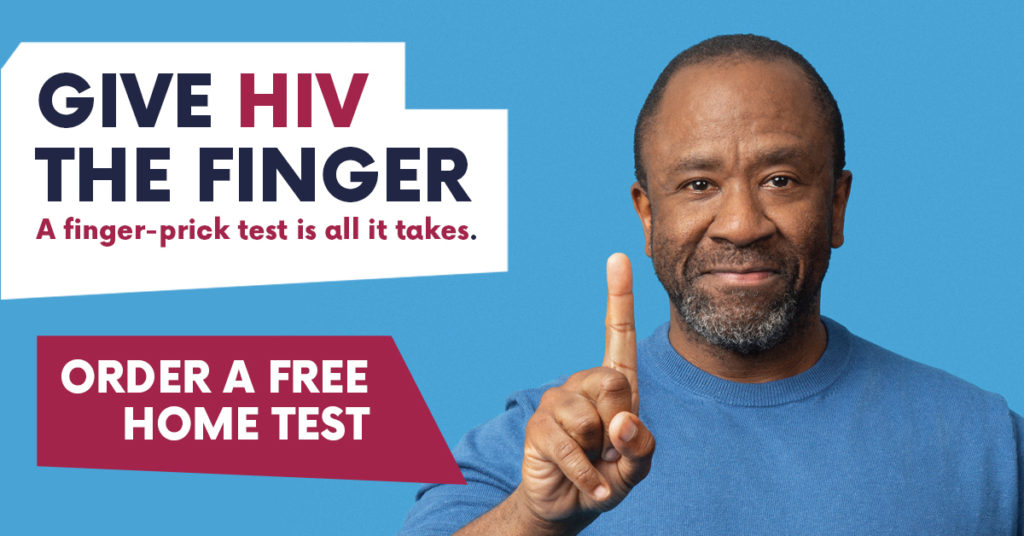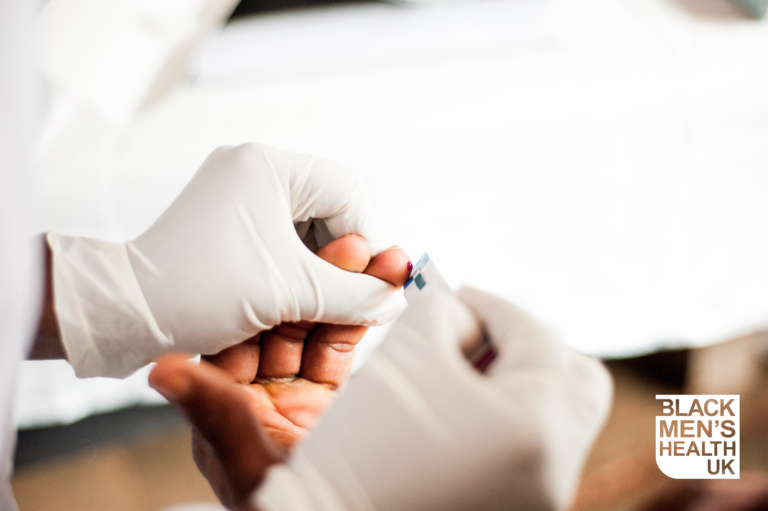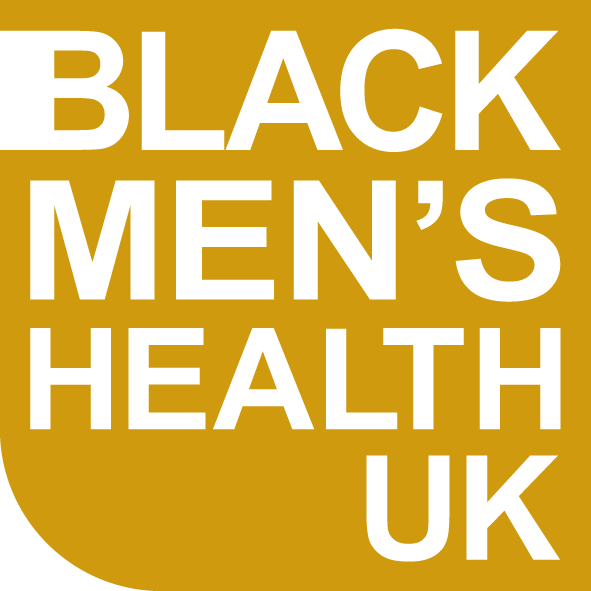This week, (1-7 Feb 2021), is National HIV Testing Week in England, an annual reminder to get tested for HIV.
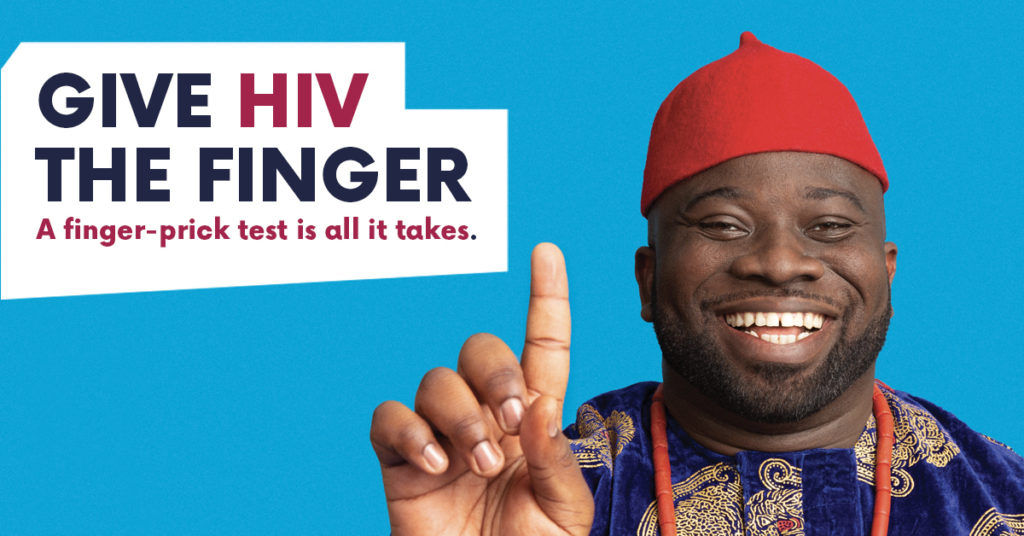
How HIV disproportionately affects Black men in the UK.
Black men are one of the groups most affected by HIV in the UK. This can be seen in the number diagnosed with HIV and the high levels of late diagnosis amongst men of Black ethnicity.
Where ethnicity is known, 16% of men diagnosed with HIV in the UK in 2019 were of Black ethnicity. This figure is high when you consider that at the last census, Black people made only 3.4% of the population.
| Ethnicity | All diagnoses in 2019 | Possible route of transmission; Sex with other men | Possible route of transmission; Heterosexual contact |
| Black African | 316 | 56 | 208 |
| Black Caribbean | 49 | 21 | data not published |
| Black other | 45 | 18 | data not published |
| White | 1660 | 1107 | 342 |
| Asian | 201 | 130 | data not published |
| Other/mixed | 301 | 204 | data not published |
| Unknown | 428 | 164 | data not published |
Late diagnoses
People of Black ethnicity, particularly Black African men, have higher rates of late diagnosis than people from other ethnicities.
A late diagnosis means that someone is diagnosed when the virus has made their immune system weak. People who are diagnosed late, live between three to five years before finding out they have it.
Why testing for HIV matters
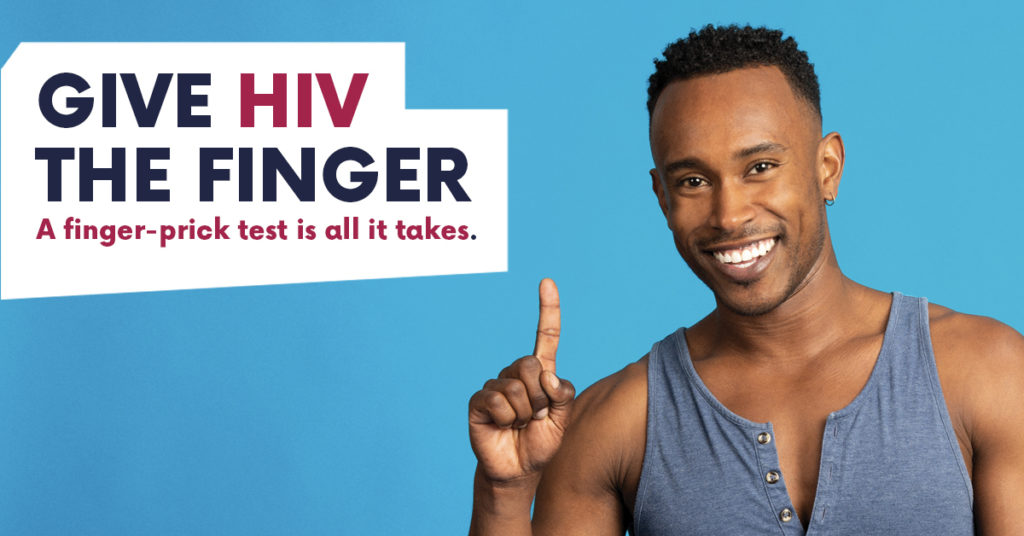
Testing is the only way to know for sure if you have HIV or not.
- Earlier diagnosis is better: Early diagnosis of HIV reduces the chances of it causing serious damage to your immune system. Once diagnosed, you can start treatment that will keep you healthy. Treatment for HIV is so effective that you can expect to live a long and healthy life.
- Testing helps stop HIV being passed on– In the vast majority of cases, people get HIV from someone who doesn’t know they have it. Lowering the number of undiagnosed HIV cases reduces the chances of HIV being passed on as people always take action to protect others from getting it.
Get tested
You can test from home this National HIV Testing Week. There are two options for this;
- using a self-sampling kit where you take a bit of blood and send it off to a lab, and then they contact you with the results.
- using a self-testing kit where you read your own results. Similar to how pregnancy testing kits work.
You can get a free self-sampling kit here. Alternatively, use this online test finder to check out your options for both self-testing and self-sampling kits.
